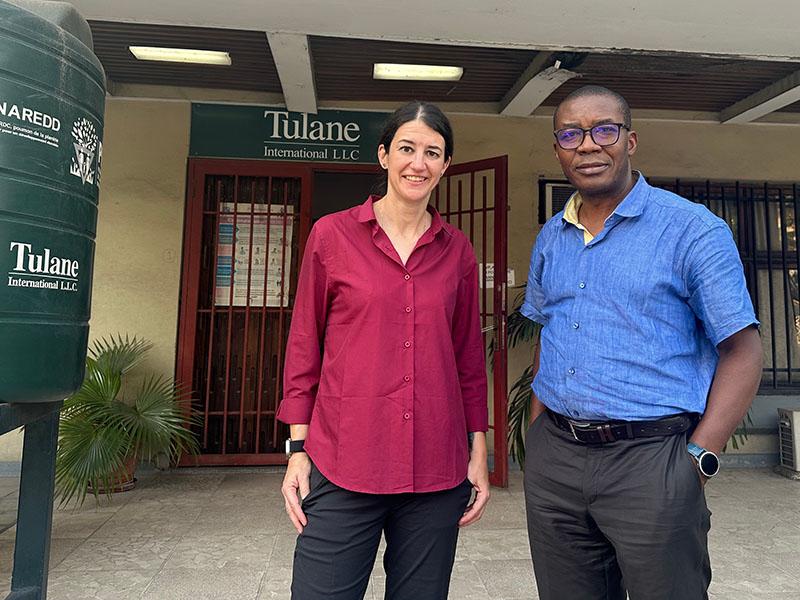Internationally-backed initiative awards Tulane $18 million grant to expand family planning in Central Africa
Tulane University has received an $18 million grant from the Fonds National REDD+ and the Central African Forest Initiative, with support from the Norwegian government, to continue scaling up access to family planning in the Democratic Republic of the Congo (DRC).
The project will run through 2028 and marks a major expansion of work Tulane first launched six years ago in partnership with local Ministry of Health programs across the country to train nursing students as community-based contraceptive providers.
The innovative model mobilizes young, locally trained health professionals to provide services in their own communities. Since its launch, the approach has been steadily expanded and institutionalized across the DRC, reaching more than 850,000 clients from 2019 to 2023. Tulane now works with more than 150 nursing schools in the region.
Julie Hernandez, PhD, associate professor in the Department of International Health and Sustainable Development at the Celia Scott Weatherhead School of Public Health and Tropical Medicine at Tulane University will be principal investigator for the project, working closely with Dr. Arsene Binanga, Tulane country director for Tulane International in the DRC.
The grant is part of the second phase of the Program for Scaling-Up Family Planning in the DRC (PROMIS 2), a $60 million initiative involving five international and national nongovernmental organizations. As technical lead, Tulane is responsible for coordinating operations across the consortium, which will be expanding to serve 12 provinces in the DRC.
“This award represents a major achievement for the School and an important investment for the DRC when funding for international development and global health is more important than ever,” said Thomas LaVeist, PhD, dean of the Celia Scott Weatherhead School of Public Health and Tropical Medicine and Weatherhead Presidential Chair in Health Equity. “Moreover, it allows Tulane to continue its valuable work to improve health outcomes in the DRC that dates back to the 1980s.”
The project aims to increase access to modern family planning methods for women in one of the world’s poorest countries. Expanding access to these resources can improve maternal health, reduce maternal mortality, keep girls in school and create economic opportunities for women, Hernandez said.
“Family planning is one of the simplest and most effective anti-poverty tools we have in global health,” Hernandez said.
PROMIS 2 will continue operations from Tulane International’s Kinshasa office—the university’s largest international office—where 15 full-time staff are based. Additional support will come from Tulane’s New Orleans campus, including Maria Herdoiza and Emma Powers, who will oversee the project’s financial and administrative management.
“This is an excellent example of why long-term investment in global health practice and research relationships can yield major benefits for our community,” Hernandez said. “Tulane has built its reputation as a trusted partner in DR Congo for donors, NGOs, governments and academic institutions alike for over 40 years and, beyond the dollar amount, this award will allow us to continue not only doing so, but also training local public health practitioners, opening new professional opportunities for our graduates and attracting more students who are interested in Tulane because of our continued work on the front lines of global health.”

